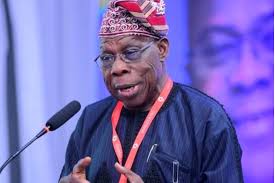Former President Olusegun Obasanjo has told President Bola Tinunu to include students in private universities as beneficiaries in the federal government’s Student Loan Scheme.
The former president also raised concerns over rising banditry and kidnappings fueled by unemployment in Nigeria.
Obasanjo spoke during the inauguration of the Asiwaju Onafowokan, Coleman Wires and Cables building at Bells University’s College of Postgraduate Studies in Ota, Ogun State.
He emphasised the importance of extending the Student Loan Scheme to all students, regardless of their university affiliation.
He expressed doubts about the scheme’s efficacy if certain groups are excluded and highlighted its significance in societal development and citizen welfare.
“The Vice Chancellor has spoken about the need to include students in private universities as beneficiaries of the Student Loan Scheme. I urge the government to listen to that and take heed to include them too. I doubt if the scheme will be run without corruption, that is another matter entirely, ” he said.
Earlier,the Vice Chancellor of Bell University of Technology, Prof. Jeremiah Ojediran, lamented the unfairness of excluding private university students from the scheme.
He argued that such decisions disregard the economic challenges faced by many parents striving to educate their children, whether in public or private institutions.
He said “that is how they excluded students in private universities from the Tertiary Education Trust Fund (TETFund) and the recent decision to exclude them from the student’s loan scheme is unfair.
“These decisions were out of touch with the current realities of the society and the expectations of the people.
“Many parents struggle to keep their children enrolled in schools, whether public or private, due to the economic downturn in the country.”
However, Akintunde Sawyerr, spokesperson for the National Education Loan Fund (NELFUND), defended the exclusion of private university students from the scheme, stating that it aims at social re-engineering and wealth redistribution to assist the less privileged.
He suggested that despite being taxpayers, parents of students in private institutions may not face the same financial hardships as those in public schools.














